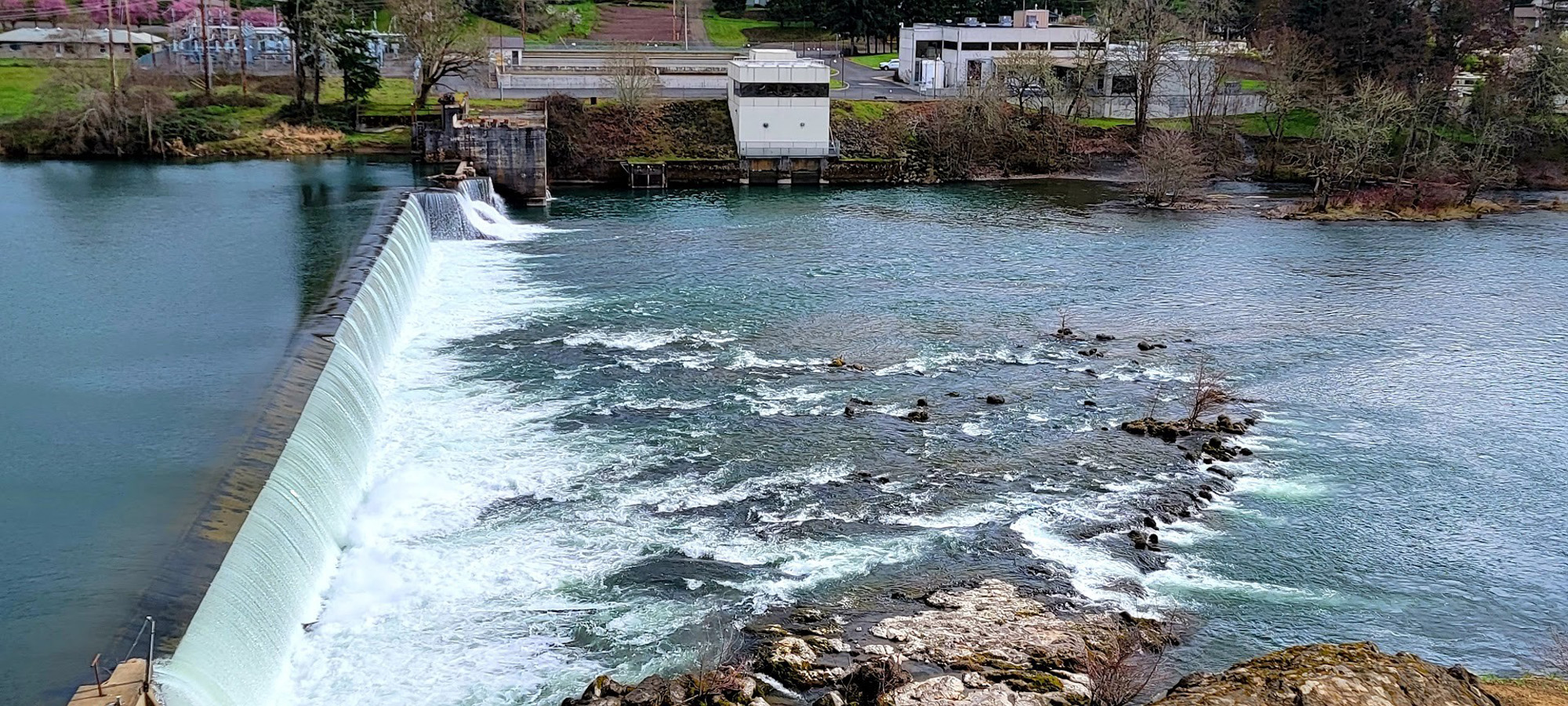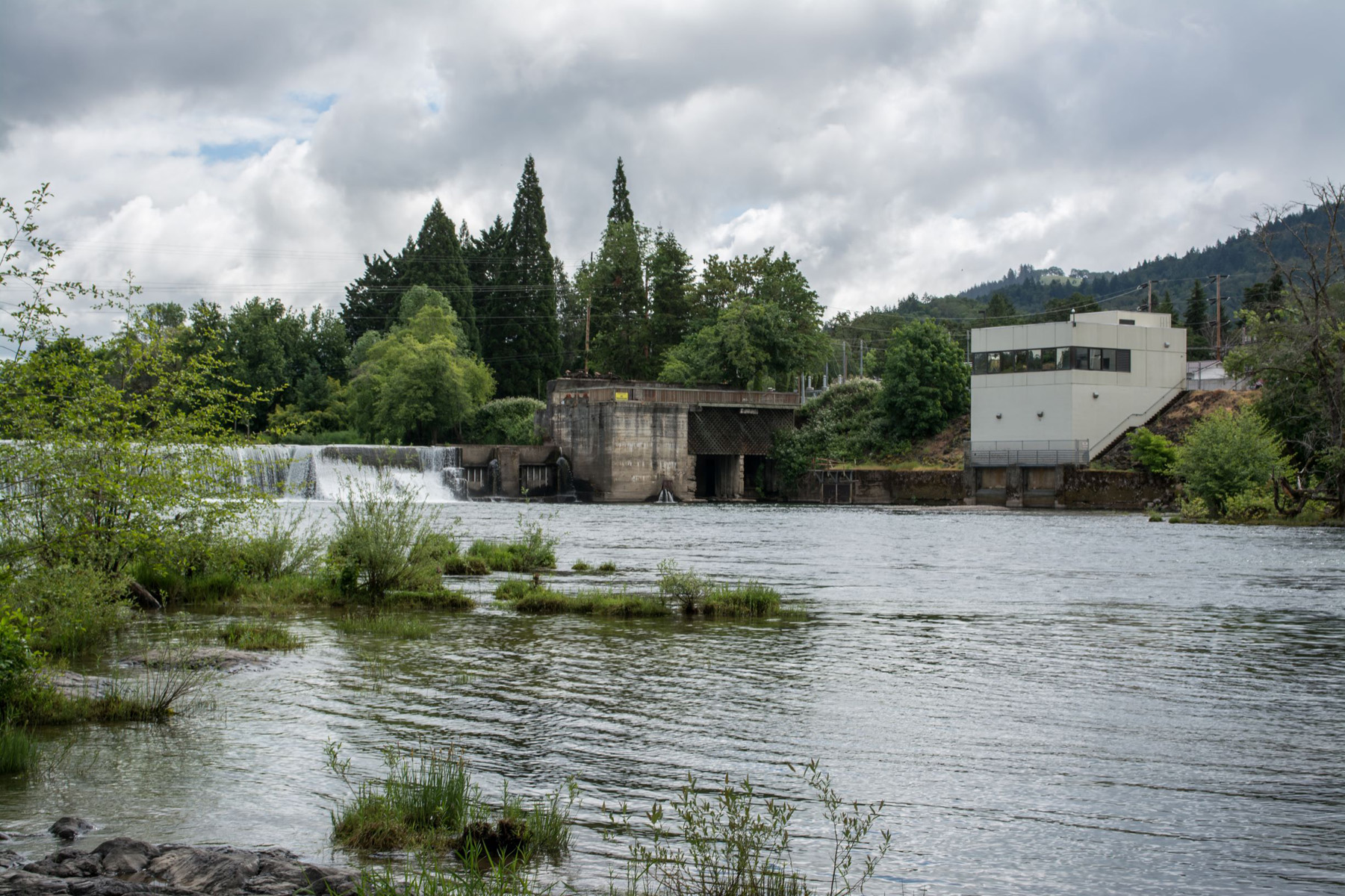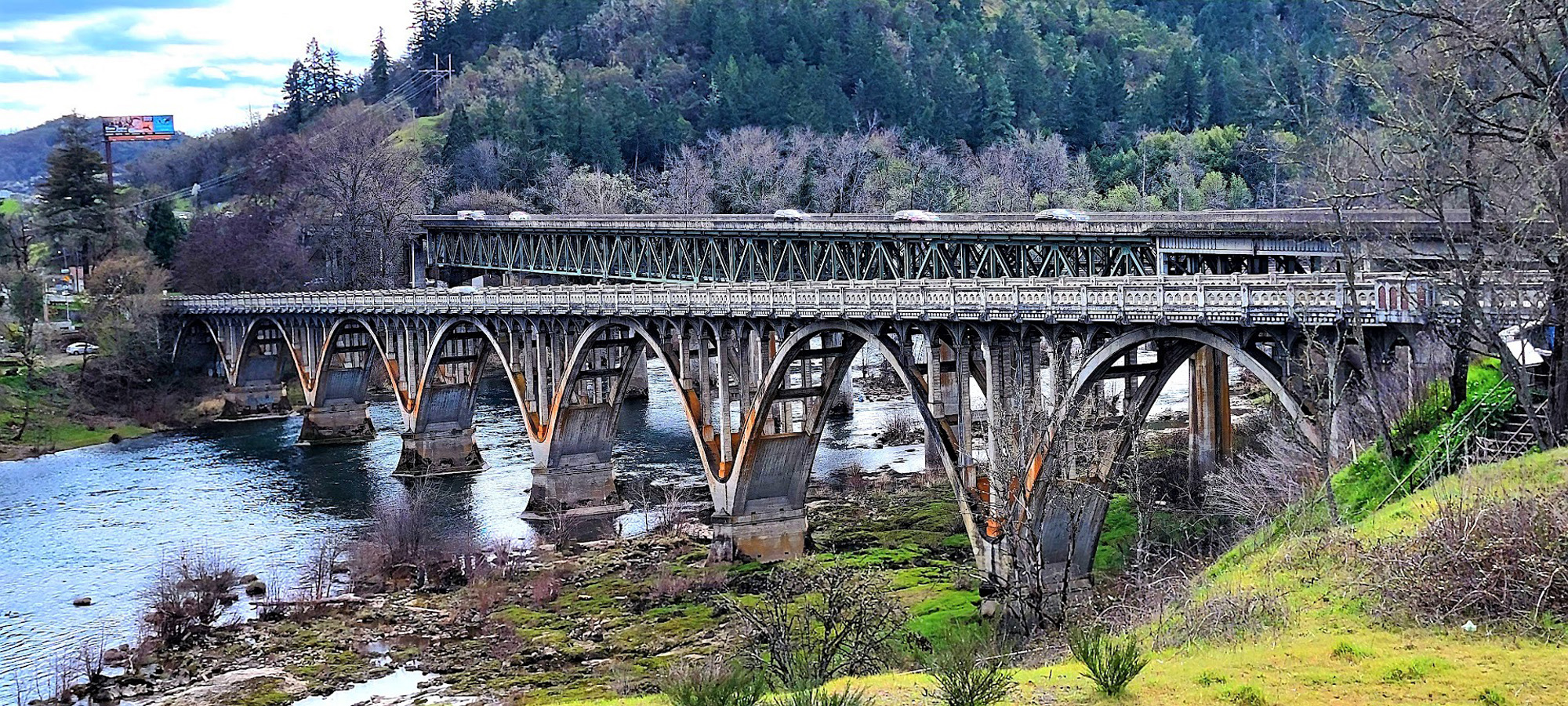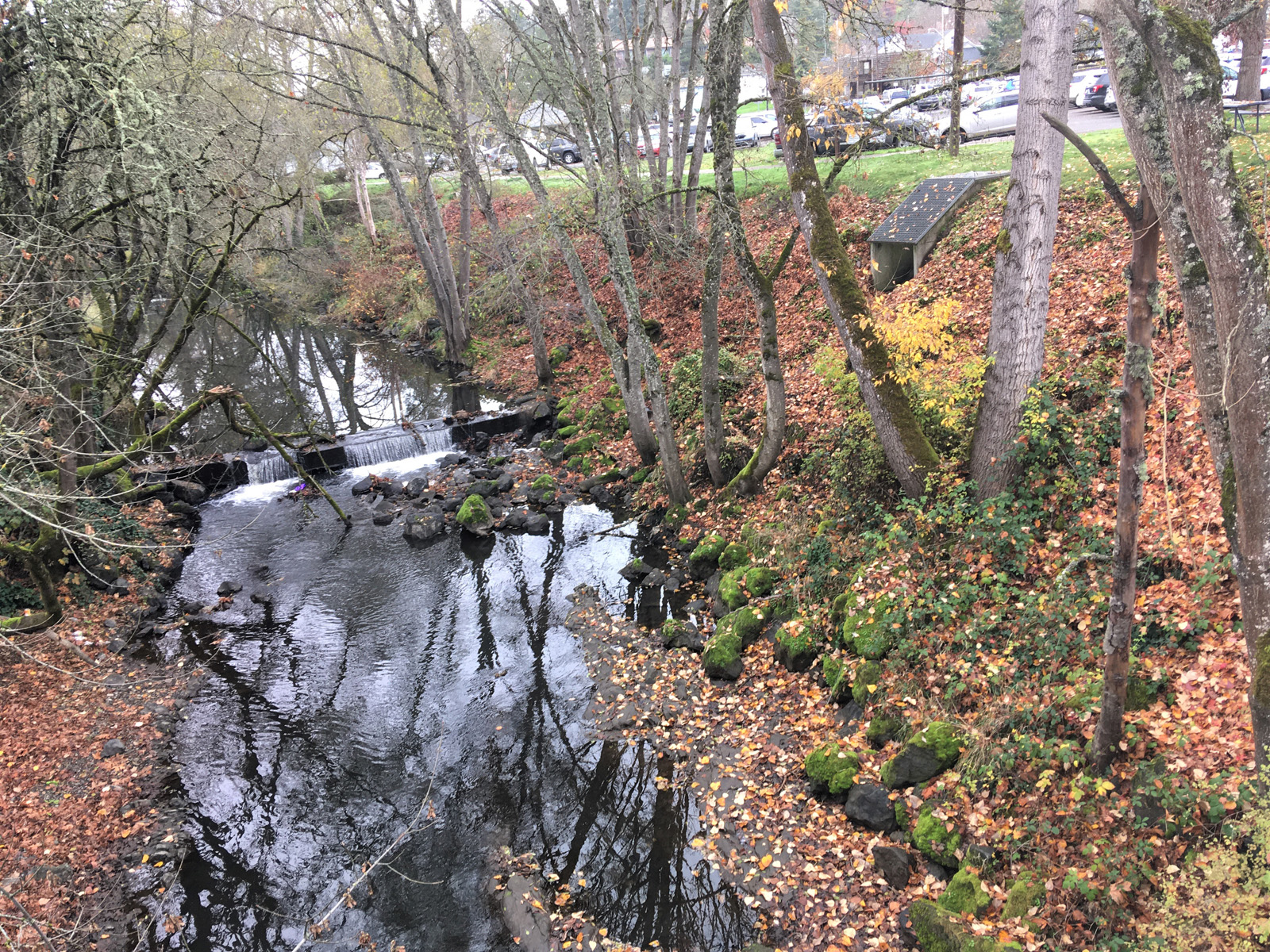D id you know that once rain falls onto the hard surfaces of streets, sidewalks, parking lots and rooftops, it picks up any and all pollutants that are in its path until it enters a stormdrain and is sent underground or directly into a stream?
In a non-city environment, rain is mostly absorbed by plants, soil, and trees. When it rains in urban areas, the water flows over hard surfaces and picks up pollution along the way, like oil from cars on the streets. This is called “stormwater runoff.” These pollutants bring extra additives to streams and lakes and cause the rapid growth of algae. Algae looks bad, smells bad, degrades water quality, and can be harmful to your health.
The City of Roseburg works with residents, businesses, and communities to manage stormwater in the area to protect water quality, public health, and the environment.
How you can help

Trash Tips
- Compost or bag leaves and lawn clippings
- Don’t blow leaves or lawn clippings into the street
- Sweep up any spills or overspray of fertilizers on sidewalks or streets

Fertilize Effectively
- Always follow the manufacturer’s recommendations.
- Fertilizing in early fall promotes healthy root systems – leading to stronger, lawns and plants.

Vehicle Smarts
- Use a commercial car wash, where water is recycled and sent to treatment facilities
- Wash your car on your lawn or gravel
- Dispose of your soapy bucket in the sink not the drain

Pick it Up
- Clean up dog waste and dispose of it into trash cans.
- Pet waste bags are available in most parks.

Businesses
- Perform maintenance to ensure stormwater ponds and drainage control structures stay clear of waste and sediment buildup
- Properly dispose of chemicals and grease

Construction
- Special stormwater permits are required for most construction sites
- Report excessive dust or mud trackout from construction sites

Illegal Dumping
- Do not dump chemicals or other waste materials into storm drains — it’s illegal
- If you see it, report it

Reporting
- pwd@cityofroseburg.org
- Phone – 541.492.6730
The Biggest Challenges We Face
The largest contributor to stormwater pollution we are currently facing is the increasing trash and disruption to the plants and earth along the river as a result of human activity.




